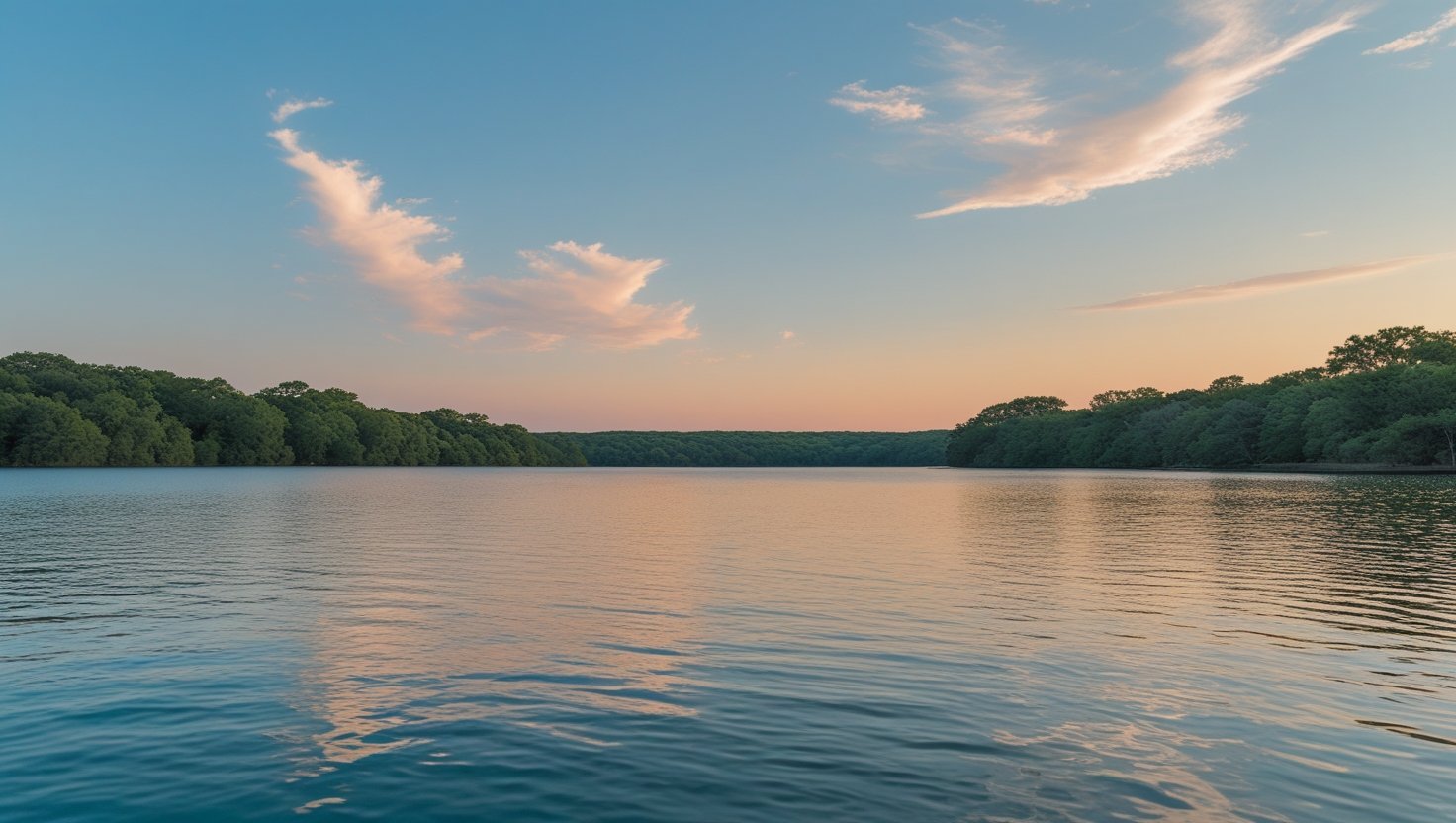Ever notice how some words just look wrong when they’re written a certain way? Like seeing “new york” instead of “New York”? It hits the eye funny. Well, let me tell you, seeing “lake texoma” instead of the majestic, properly capitalized Lake Texoma gives me the same grammatical shivers. It’s not just a preference; it’s a fundamental rule of the English language. And honestly? Getting it right matters more than you might think, especially if you’re writing anything from a fishing blog to an official tourism guide about this incredible Oklahoma-Texas border gem.
Think about it. Names have power. They signify identity, specificity, and respect. Lake Texoma isn’t just any lake; it’s a massive reservoir with a distinct name, rich history, and a unique place on the map. Treating its name correctly – capitalizing both “Lake” and “Texoma” – is the grammatical equivalent of giving it the recognition it deserves. It’s not pedantry; it’s precision. And in a world drowning in online content, precision builds credibility. So, let’s settle this once and for all: Yes, “Lake Texoma” should always be capitalized. Here’s the why and the how, broken down so clearly even a jet ski could navigate it.
Why Capitalization Isn’t Just for Fancy Occasions
- It’s a Proper Noun, Period: This is the bedrock rule. Specific names of people, places, organizations, and unique things get capitalized. “Lake Texoma” isn’t a generic description; it’s the official name of a specific body of water. Just like you wouldn’t write “president lincoln” or “mount everest,” you don’t write “lake texoma.” The word “Lake” is an integral part of its unique title.
- The “Lake” Isn’t Optional Fluff: Sometimes people trip up, thinking “Texoma” is the important bit and “lake” is just a descriptor. Nope. In this context, “Lake” is fused to “Texoma” to form the complete, specific name. It functions as a single unit. Compare:
- “We swam in the lake.” (General term, lowercase ‘l’)
- “We swam in Lake Texoma.” (Specific, proper name, capital ‘L’ and ‘T’)
The capitalization instantly signals you’re talking about that particular lake, not just any old pond.
- Consistency is King (and Queen) in Language: Look at any map, atlas, reputable news source, or official government document. You’ll see Lake Michigan, Lake Superior, Lake Tahoe, Lake Como. The pattern is unbreakable: Specific lake names = Capitalized “Lake” + Capitalized Unique Name. Lake Texoma stands proudly in this same category. Deviating from this standard doesn’t make you a rebel; it just makes your writing look sloppy or uninformed.
- Clarity for Readers (and Search Engines): Capitalization acts like a signpost. Writing “We fished lake texoma near Denison” creates a tiny moment of ambiguity. Is “lake texoma” the name, or is it “texoma near Denison”? Capitalizing it – “We fished Lake Texoma near Denison” – removes all doubt instantly. This clarity isn’t just good for humans; search engines like Google also rely on consistent signals to understand content and serve relevant results. Proper capitalization helps them correctly identify the geographical entity you’re discussing.
Lake Texoma Capitalization: Right vs. Wrong (It’s Not Subjective)
| Context | Correct Capitalization | Incorrect Capitalization | Why It Matters |
|---|---|---|---|
| Standalone Name | Lake Texoma | lake Texoma | Violates proper noun rule. “Lake” is part of the specific name. |
| Beginning of Sentence | Lake Texoma offers… | lake Texoma offers… | Looks unprofessional and grammatically jarring. |
| Within a Sentence | …vacationing at Lake Texoma. | …vacationing at lake Texoma. | Fails to signal the specific name, reducing clarity. |
| Maps & Signage | Lake Texoma | lake texoma | Official designations demand formal correctness. |
| Tourism Marketing | Discover Lake Texoma! | Discover lake Texoma! | Undermines brand authority and destination prestige. |
Beyond the Rule: Why Bother? (A Copywriter’s Perspective)
Okay, you get the rule. But why does a seasoned copywriter like me get so animated about two little capital letters? It boils down to trust and professionalism.
- First Impressions Count: In online writing, you have milliseconds to grab attention and establish credibility. Seeing a glaring capitalization error like “lake texoma” is an immediate red flag for many readers. It subtly whispers, “Maybe this writer doesn’t know their stuff.” Conversely, getting it right signals attention to detail and respect for the subject matter. When writing about a destination as significant as Lake Texoma, that respect matters.
- SEO Nuance: While search engines are sophisticated, consistency does play a role. Using the correctly capitalized form Lake Texoma consistently throughout your content (headings, body text, image alt tags, meta descriptions) reinforces the entity you’re discussing. It helps avoid any potential confusion with generic terms. It’s not the biggest ranking factor, but it’s part of the meticulous foundation good SEO is built on. Think of it as optimizing for both bots and humans who appreciate correctness.
- Voice Search Matters: People asking their devices “Hey Google, how big is Lake Texoma?” are using the natural, capitalized form. Content that mirrors this natural language, including correct capitalization, is more likely to be deemed relevant for voice search results.
- Respect for the Place: This feels less technical, but it’s real. For the communities around it, the businesses relying on it, and the millions who enjoy it, Lake Texoma is a proper noun deserving of its capital letters. It’s a landmark. Capitalizing it fully is simply showing respect.
FAQs
- Q: Is “lake” always capitalized when talking about Lake Texoma?
A: Yes, absolutely. When “Lake” is part of the specific, official name “Lake Texoma,” it must always be capitalized, no matter where it appears in a sentence. The only time “lake” is lowercase is when you’re using it generically, like “the lake near my house” or “many lakes in Oklahoma.” - Q: What about when I’m just saying ‘the lake’ later in my article?
A: Once you’ve established you’re talking specifically about Lake Texoma, it’s perfectly fine (and standard) to refer to it subsequently as “the lake” with a lowercase ‘l’. For example: “Lake Texoma is renowned for its striper fishing. Anglers flock to the lake year-round.” The initial capitalization sets the context. - Q: Does this rule apply to all lakes?
A: Yes! The rule is universal for specific, named lakes. Lake Michigan, Lake Victoria, Crater Lake, Great Salt Lake – all follow the same principle: Capitalize “Lake” (or the equivalent like “Loch” in Loch Ness) as part of the proper name. Generic references remain lowercase (“the alpine lake,” “several small lakes”). - Q: What about reservoirs? Does it work the same way?
A: Absolutely. If the reservoir has a specific, official name that includes “Lake,” the same capitalization rule applies. Lake Texoma itself is a reservoir (Denison Dam), but its official name includes “Lake,” so it’s Lake Texoma. Other examples include Lake Mead or Lake Powell. - Q: I see ‘lake Texoma’ sometimes online, even on websites. Does that make it okay?
A: Sadly, no. The internet is full of grammatical errors. Just because something is common doesn’t make it correct. Reputable sources (government sites, major news outlets, official tourism boards) consistently use Lake Texoma. Following the correct standard elevates your own writing above the noise. - Q: Why do some people argue it shouldn’t be capitalized? Is there any gray area?
A: Honestly, the arguments usually stem from misunderstanding the proper noun rule or confusing it with generic terms. There is no credible grammatical gray area here for established, named lakes like Texoma. Style guides (AP, Chicago, MLA) are unanimous on this point. Some might informally drop the capital in very casual contexts (texts, social media captions), but for any formal or professional writing, Lake Texoma is non-negotiable.
Wrapping It Up: More Than Just Letters on a Screen
Look, language evolves. Rules bend. But capitalizing Lake Texoma? That’s one linguistic hill I’ll happily defend. It’s not about being stuffy; it’s about clarity, professionalism, and showing a basic level of respect for a significant geographical feature and the communities tied to it.
Getting this right costs you nothing but a moment of attention. The payoff? Your writing instantly looks more polished, credible, and in tune with how people naturally search for and discuss this fantastic destination. Whether you’re crafting a blog post about the best striper guides, writing a real estate listing for a lakeside property, or updating a tourism brochure, give Lake Texoma its due. Hit that shift key for the ‘L’ and the ‘T’. Your readers (and maybe even the lake itself!) will thank you for it.
So, next time you type its name, ask yourself: Am I writing about *a* lake, or am I writing about THE Lake Texoma? The capitals make all the difference.
READ ASLO: The Impact of Fountains on Pond Temperature Regulation











